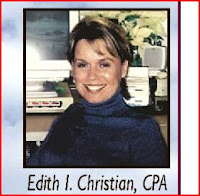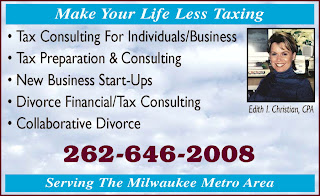If you earned $50,270 or less in 2012 (this number will vary
depending on your filing status), you qualify for one of the
least-talked-about but most-valuable tax credits for low- and moderate-
income working individuals and families. The Earned Income Tax Credit
(EITC), created in 1975, was originally established to help offset the
regressive nature of Social Security payroll taxes. As you may know, you
contribute a portion of your paycheck to Social Security up to what's
known as the Social Security wage base, which was $110,100 in 2012 and
will increase to $113,700 for 2013. If you earn more than the wage base,
those dollars are not subject to the payroll tax. This puts a greater
burden on low-income workers.
If the EITC sounds familiar, it’s because it was extended five years
with the passage of the American Recovery and Reinvestment Act of 2009.
It also added an extra tier, for those with three or more children, and
mitigated the marriage penalty by increasing the phase-out for married
couples. In addition to the federal EITC, 25 states and the District of
Columbia also have their own EITC.
What is the EITC and who is eligible? IRS
Publication 596 covers the details of the EITC, also called the Earned
Income Credit (EIC). It's a refundable tax credit that
taxpayers can claim if they meet the EITC income limits.
Those limits are:
- Single Filers - $13,980 with no children, $36,920 with one
child, $41,952 with two children, and $45,060 for three or more
children.
- Married couples - $19,190 with no children, $42,130 with one
child, $47,162 with two children, and $50,270 with three or more
children.
- Married filing separately are not eligible.
The best way to determine if you qualify is to use tax software. If
you don't want to use tax software, your next best option is to use the
IRS's EITC Assistant.
Who is a qualifying child? The rules of qualifying children match those for other tax credits
and take into account their age, relationship to the tax payer, and
where they lived. They need to be young than 19 unless they are a full
time student or disabled. For relationship, any children (son, daughter,
adopted children, stepchildren, or grandchildren) count and siblings
can count if you care for them. To pass the residency test they, need to
live with you for more than half the year.
How much do you get as a credit? The calculation of
your credit is complicated, so it's best to use a calculator. There is a
phase in period, a plateau period, and then a phase-out period that
ends with the income limits listed above.
At the maximum, single filers with three or more children
could get back $5,236, while married filing jointly with three or more
children could get $5,891 back. Single filers with no children still see
$475 at the maximum.
As for the 25 states that offer EITC, those are typically calculated
based on federal requirements and vary in terms of generosity.
Regardless of how you feel about the politics of the EITC, it's a
boon for low- to moderate-income workers and it incentivizes people to pursue employment.
Since the phase-in increases with income to the plateau, workers get a
greater credit if they work more. Proponents argue that this rewards
working and detractors say you're better off being more direct and
increasing minimum wage and other pay measures.
http://www.edithchristiancpa.net/services/







